In pictures: The immunisation card - a lifesaver
- Published
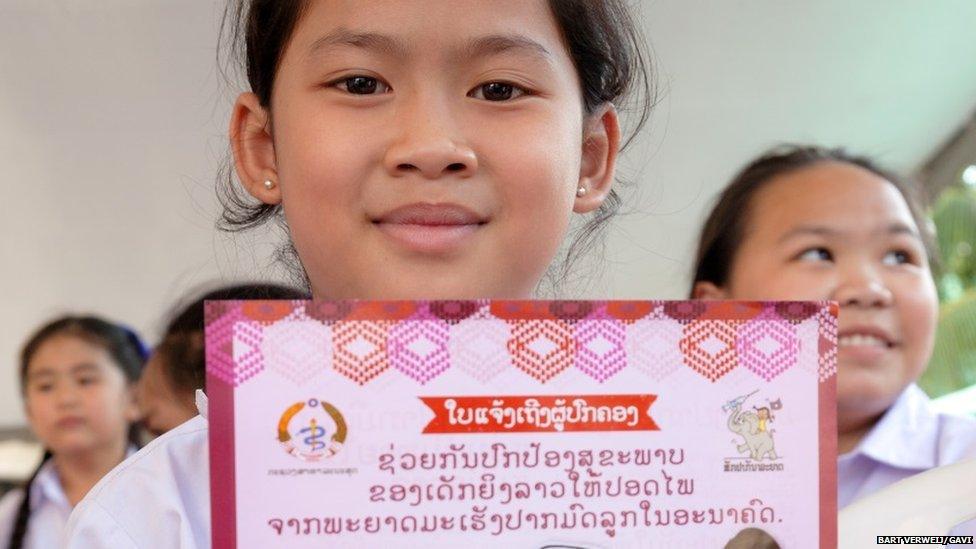
In order to make sure vaccines continue to reach the world’s poorest children, data is essential. Immunisation records around the globe are used broadly to act as proof of vaccination for everyone from a child’s family to a country’s government. Images from Global Alliance for Vaccines and Immunisation (Gavi).
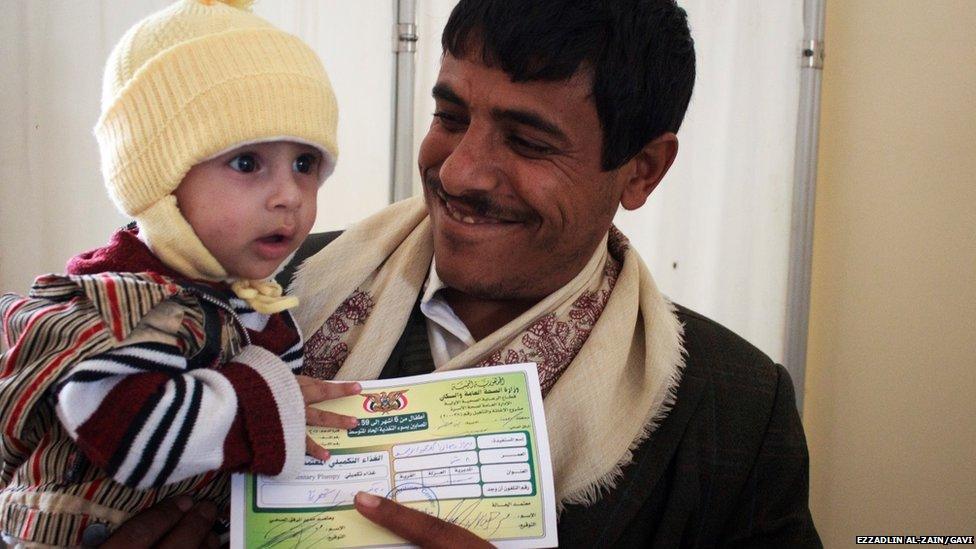
With an estimated 22.6 million children still going without basic vaccines last year, the need to identify and monitor the real extent of immunisation programmes is as important as ever. Typically cards are retained by parents, often treasured as a symbol of hope for the child’s future health and prosperity.
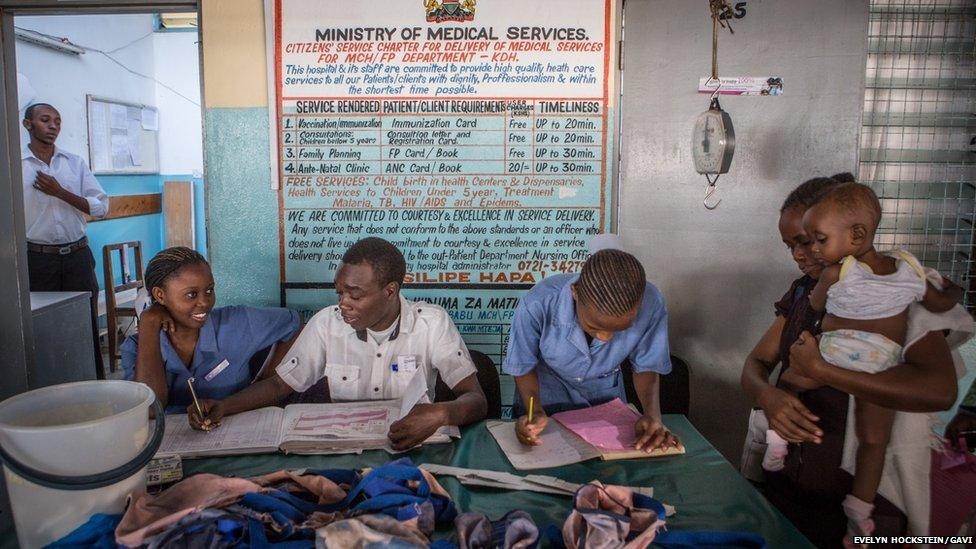
Cards are also important for health workers and health systems implementing new vaccines. The more that can be understood about numbers of children vaccinated in specific areas, the easier it is to measure the effectiveness of a particular vaccine.
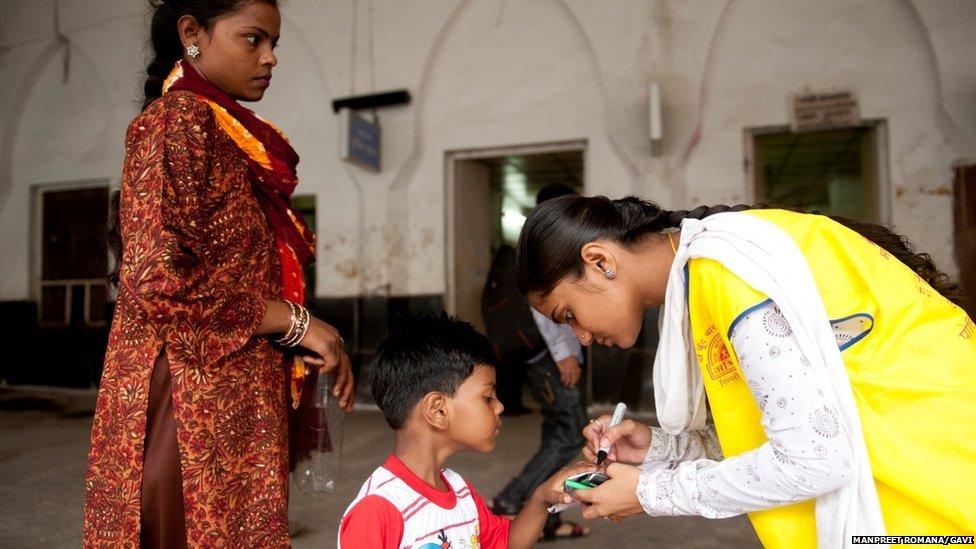
In India, the polio eradication scheme found innovative ways to keep track of moving and unregistered children during campaigns, marking a child’s finger with indelible ink to signify their vaccination.
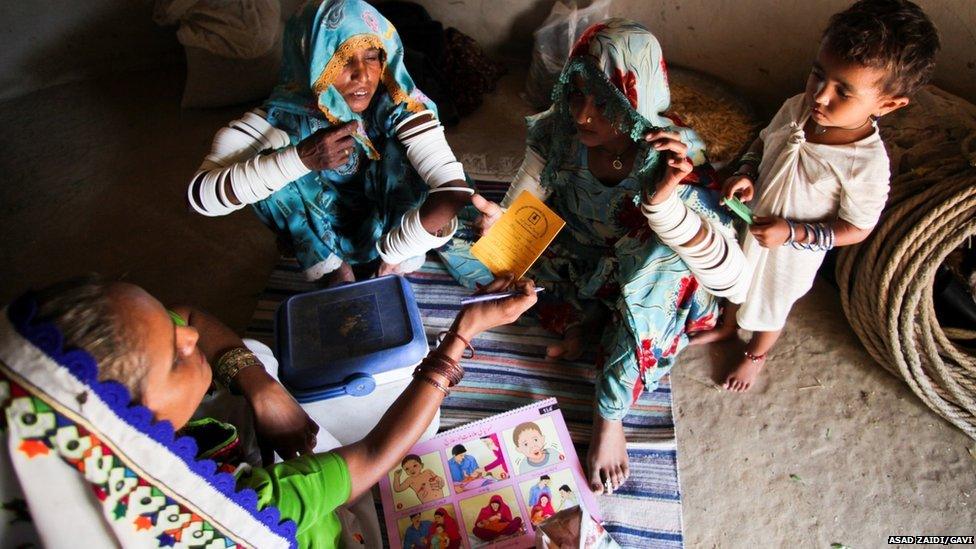
As well as the vaccination card, other materials can also be given out during a house visit, such as those aimed at educating mothers on other aspects of child health.
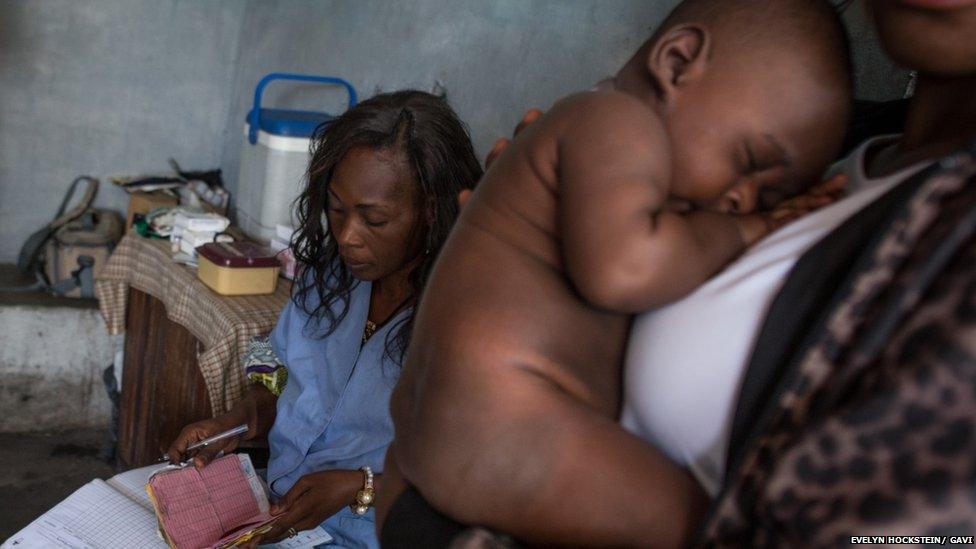
Cards, like vaccinations themselves, can be given out in the homes of those living in the most rural places - such as here, in the Democratic Republic of Congo - as health workers conduct special visits to reach specific communities or those who are unable to travel.
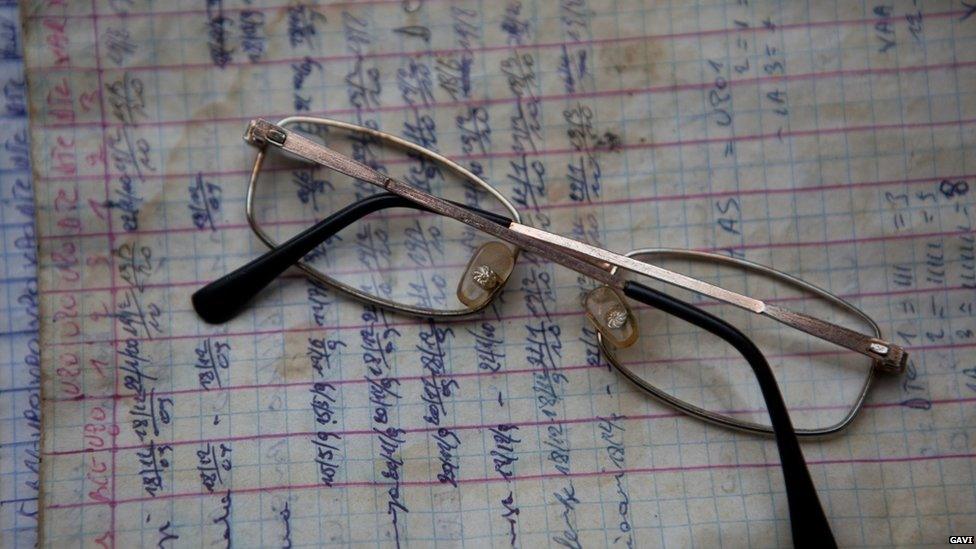
In most countries immunisation records are still written out by hand, which can make it difficult to extract data and can cause complications if the record is lost.
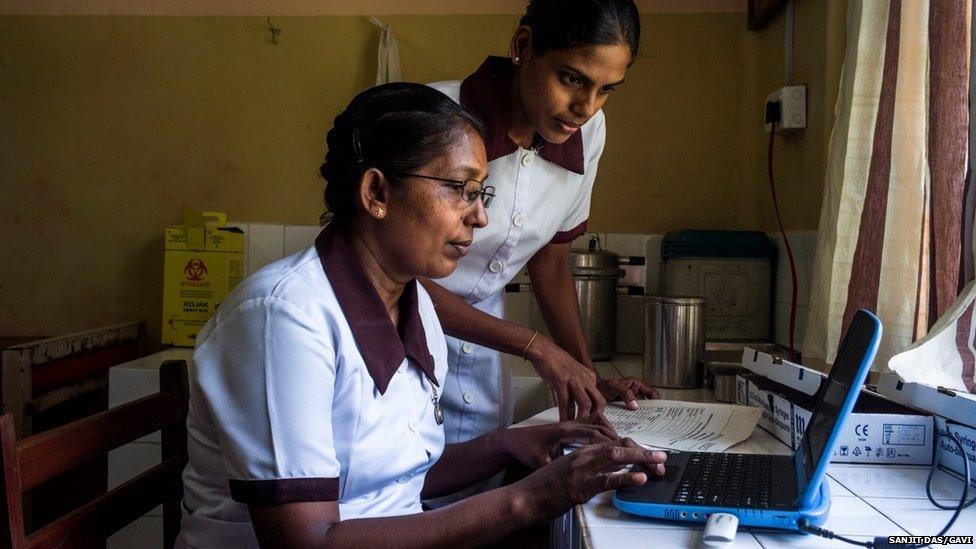
But the immunisation landscape is also using technology to evolve. Sri Lankan nurses take lessons on digital immunisation record-keeping in Wattala, outside Colombo.
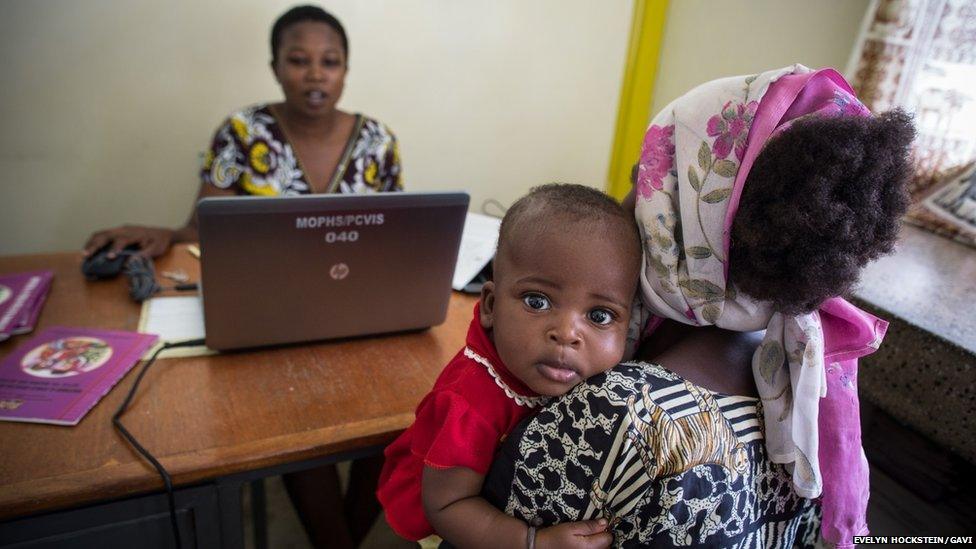
Digital recording can have other uses too. Baby Mwanahawsi has his general health recorded by a data clerk who is part of the effort to monitor levels of pneumonia post-vaccination in Kilifi District, Kenya.
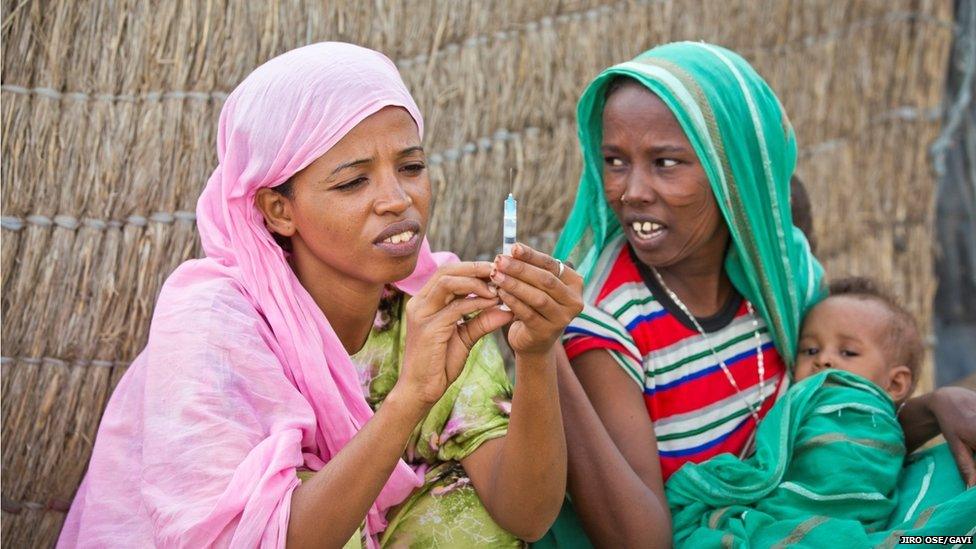
In some areas, keeping track of immunisation is a cultural challenge. Sister Sofia Benti prepares a vaccine for Hamed in a rural Ethiopian community where recording children’s ages and vaccinations is not common.